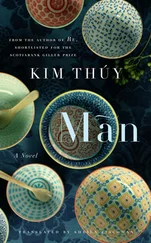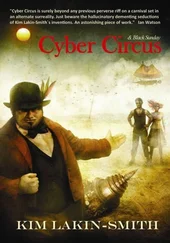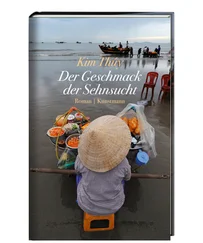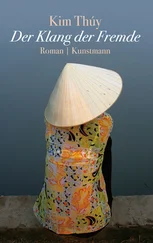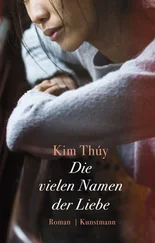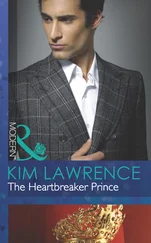Love, as my son Pascal knows it, is defined by the number of hearts drawn on a card or by how many stories about dragons are told by flashlight under a down-filled comforter. I have to wait a few more years till I can report to him that in other times, other places, parents showed their love by willingly abandoning their children, like the parents of Tom Thumb. Similarly, the mother who made me glide on the water with the help of her long stick, surrounded by the high mountain peaks of Hoa L  , wanted to give up her daughter, pass her to me. That mother wanted me to replace her. She preferred to cry over her child’s absence rather than watch her running after tourists to sell them the tablecloths she had embroidered. I was a young girl then. In the midst of those rocky mountains, I saw only a majestic landscape in place of that mother’s infinite love. There are nights when I run along the long strips of earth next to the buffalo to call her back, to take her daughter’s hand in mine.
, wanted to give up her daughter, pass her to me. That mother wanted me to replace her. She preferred to cry over her child’s absence rather than watch her running after tourists to sell them the tablecloths she had embroidered. I was a young girl then. In the midst of those rocky mountains, I saw only a majestic landscape in place of that mother’s infinite love. There are nights when I run along the long strips of earth next to the buffalo to call her back, to take her daughter’s hand in mine.
I am waiting till Pascal is a few years older before I make the connection between the story of the mother from Hoa L  and Tom Thumb. In the meantime, I tell him the story of the pig that travelled in a coffin to get through the surveillance posts between the countryside and the towns. He likes to hear me imitate the crying women in the funeral procession who threw themselves body and soul onto the long wooden box, wailing, while the farmers, dressed all in white with bands around their heads, tried to hold them back, to console them in front of the inspectors who were too accustomed to death. Once they got back to town, behind the closed doors of an ever-changing secret address, the farmers turned the pig over to the butcher, who cut it into pieces. The merchants would then tie those around their legs and waists to transport them to the black market, to families, to us.
and Tom Thumb. In the meantime, I tell him the story of the pig that travelled in a coffin to get through the surveillance posts between the countryside and the towns. He likes to hear me imitate the crying women in the funeral procession who threw themselves body and soul onto the long wooden box, wailing, while the farmers, dressed all in white with bands around their heads, tried to hold them back, to console them in front of the inspectors who were too accustomed to death. Once they got back to town, behind the closed doors of an ever-changing secret address, the farmers turned the pig over to the butcher, who cut it into pieces. The merchants would then tie those around their legs and waists to transport them to the black market, to families, to us.
I tell Pascal these stories to keep alive the memory of a slice of history that will never be taught in any school.
I remember some students in my high school who complained about the compulsory history classes. Young as we were, we didn’t realize that the course was a privilege only countries at peace can afford. Elsewhere, people are too preoccupied by their day-to-day survival to take the time to write their collective history. If I hadn’t lived in the majestic silence of great frozen lakes, in the humdrum everyday life of peace, where love is celebrated with balloons, confetti, chocolates, I would probably never have noticed the old woman who lived near my great-grandfather’s grave in the Mekong Delta. She was very old, so old that the sweat ran down her wrinkles like a brook that traces a furrow in the earth. Her back was hunched, so hunched that she had to go down staircases backwards so as not to lose her balance and fall headfirst. How many grains of rice had she planted? How long had she spent with her feet in the mud? How many suns had she watched set over her rice fields? How many dreams had she set aside only to find herself bent in two, thirty years, forty years later?
We often forget about the existence of all those women who carried Vietnam on their backs while their husbands and sons carried weapons on theirs. We forget them because under their cone-shaped hats they did not look up at the sky. They waited only for the sun to set on them so they could faint instead of falling asleep. Had they taken the time to let sleep come, they would have imagined their sons blown into a thousand pieces or the bodies of their husbands drifting along a river like flotsam. American slaves were able to sing about their sorrow in the cotton fields. Those women let their sadness grow in the chambers of their hearts. They were so weighed down by all their grief that they couldn’t pull themselves up, couldn’t straighten their hunched backs, bowed under the weight of their sorrow. When the men emerged from the jungle and started to walk again along the earthen dikes around their rice fields, the women continued to bear the weight of Vietnam’s inaudible history on their backs. Very often they passed away under that weight, in silence.
One of those women, whom I knew, died when she lost her footing in the toilet, perched above a pond full of bullheads. Her plastic slippers slid. Anyone watching her at that moment would have seen her cone-shaped hat disappear behind the four panels that barely hid her crouching body, surrounding her without protecting her. She died in the family’s septic tank, her head plunging into a hole full of excrement between two planks, behind her hut, surrounded by smooth-skinned, yellow-fleshed bullheads, without scales, without memory.
After the old lady died, I would go every Sunday to a lotus pond in a suburb of Hanoi where there were always two or three women with bent backs and trembling hands, sitting in a small round boat, using a stick to move across the water and drop tea leaves into open lotus blossoms. They would come back the next day to collect them one by one before the petals faded, after the captive tea leaves had absorbed the scent of the pistils during the night. They told me that every one of those tea leaves preserved the soul of the short-lived flowers.
Photos could not preserve the soul of our first Christmas trees. Those branches gathered in the woods of suburban Montreal, stuck in the rim of a spare tire covered with a white sheet, seem bare and lacking in magic, but in reality they were much prettier than the eight-foot-tall spruce trees we have nowadays.
My parents often remind my brothers and me that they won’t have any money for us to inherit, but I think they’ve already passed on to us the wealth of their memories, allowing us to grasp the beauty of a flowering wisteria, the delicacy of a word, the power of wonder. Even more, they’ve given us feet for walking to our dreams, to infinity. Which may be enough baggage to continue our journey on our own. Otherwise, we would pointlessly clutter our path with possessions to transport, to insure, to take care of.
A Vietnamese saying has it that “Only those with long hair are afraid, for no one can pull the hair of those who have none.” And so I try as much as possible to acquire only those things that don’t extend beyond the limits of my body.
In any case, since our escape by boat, we learned how to travel very light. The gentleman seated next to my uncle in the hold had no luggage, not even a small bag with warm clothes like us. He had on everything he owned. Swimming trunks, shorts, pants, T-shirt, shirt and sweater, and the rest was in his orifices: diamonds embedded in his molars, gold on his teeth and American dollars stuffed in his anus. Once we were at sea, we saw women open their sanitary napkins to take out the American dollars impeccably folded lengthwise in three.
As for me, I had an acrylic bracelet, pink like the gums of the dental plate it had been made from, filled with diamonds. My parents had also put diamonds in the collars of my brothers’ shirts. But we had no gold in our teeth because it was forbidden to touch the teeth of my mother’s children. She often told us that teeth and hair are the roots, maybe even the fundamental source, of a person. My mother wanted our teeth to be perfect.
That’s why even in a refugee camp she was able to find a pair of dental pliers to pull out our loose baby teeth. She waved each extracted tooth in front of us under the blazing Malaysian sun. Those blood-stained teeth were proudly displayed against the backdrop of a fine sandy beach and a barbed-wire fence. My mother told me it would be possible to enlarge my eyes and maybe even to fix my ears, which stuck out too much. She couldn’t fix the other structural imperfections of my face, though, so at least I should have flawless teeth and above all not trade them for diamonds. She also knew that if our boat had been intercepted by Thai pirates, the gold teeth and those that were filled with diamonds would have been pulled out.
Читать дальше
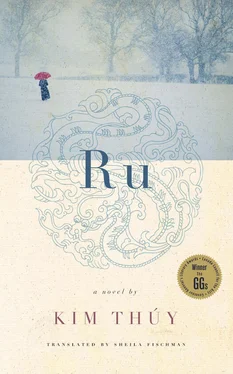
 , wanted to give up her daughter, pass her to me. That mother wanted me to replace her. She preferred to cry over her child’s absence rather than watch her running after tourists to sell them the tablecloths she had embroidered. I was a young girl then. In the midst of those rocky mountains, I saw only a majestic landscape in place of that mother’s infinite love. There are nights when I run along the long strips of earth next to the buffalo to call her back, to take her daughter’s hand in mine.
, wanted to give up her daughter, pass her to me. That mother wanted me to replace her. She preferred to cry over her child’s absence rather than watch her running after tourists to sell them the tablecloths she had embroidered. I was a young girl then. In the midst of those rocky mountains, I saw only a majestic landscape in place of that mother’s infinite love. There are nights when I run along the long strips of earth next to the buffalo to call her back, to take her daughter’s hand in mine.